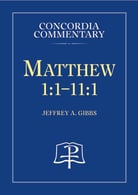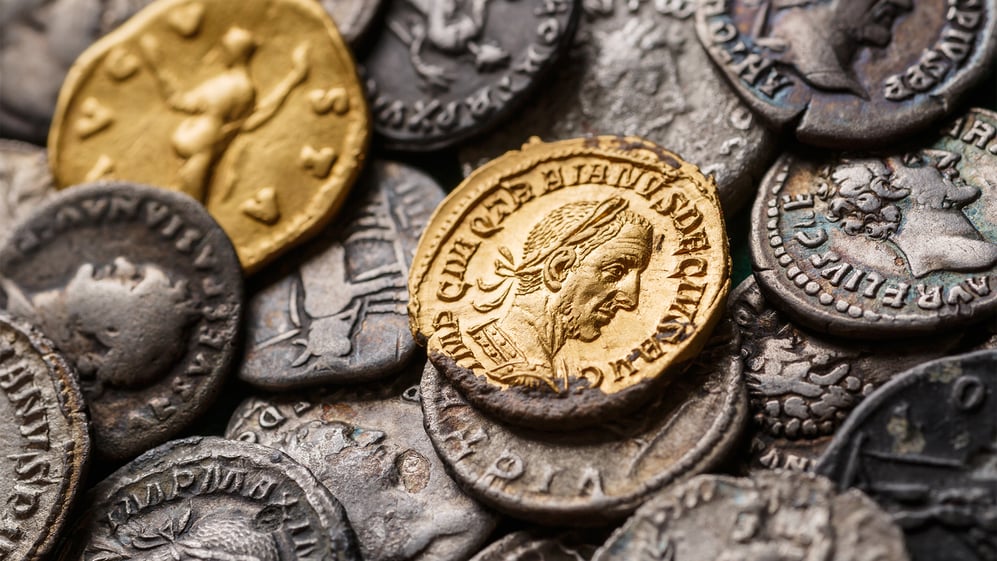A quote attributed to Benjamin Franklin regarding taxes is “In this world nothing can be said to be certain, except death and taxes.” I have yet to encounter anyone who is pleased to pay taxes. What is more, were one to survey every taxpayer in the United States, such an effort would produce an endless variety of opinions on how much taxation is appropriate and what are legitimate uses of tax dollars. Matthew, a tax collector, lived under the disdain of those from whom he collected taxes. Yet the disdain for tax collectors in first-century Palestine was particularly bitter. This area of the world lived under Roman rule. Not only did Rome forcibly occupy Palestine, but she also imposed taxes to support her tyranny. Matthew collected such taxes from his own people. This man who would eventually become an apostle and Gospel writer was in league with the enemy and perhaps took in more taxes than was required by Rome to line his own pockets.
Willingness to Follow Christ
As Jesus passed on from there, He saw a man called Matthew sitting at the tax booth, and He said to him, “Follow Me.” And he rose and followed Him. (Matthew 9:9)
The first of two remarkable events in this verse sees Jesus calling a tax collector in plain sight. Before this event, Jesus heals a man who was paralyzed and also claims to forgive his sins, much to the chagrin of the teachers of the law who were present. We learn later that the Pharisees see Jesus eating with tax collectors and “sinners.” This suggests that teachers of the law or Pharisees saw Jesus call Matthew. Second, Matthew is willing to leave immediately. It is likely that Matthew knew of Jesus already but it is also likely that he did not realize who Jesus really was. What is more, Matthew walked off the job, risking censure from his Roman employers and the loss of a steady income. Matthew must have found Jesus quite compelling to make such a rash, life-changing decision.
An “Unclean” Gathering
And as Jesus reclined at table in the house, behold, many tax collectors and sinners came and were reclining with Jesus and His disciples. (Matthew 9:10)
We learn from Luke that Matthew hosted this event, no doubt with the considerable resources his work had provided. It is important to note that to eat at someone’s house was an expression of friendship and reflected intimacy. This is exactly what concerned the Pharisees. As noted above, tax collectors were considered selfish, greedy leeches who feasted on Jewish society. What is more, tax collectors came into regular contact with Gentiles, making them unclean in the Jewish mind. Of those called “sinners,” it is interesting to note that one could be a “sinner” without breaking any of the Lord’s laws. Such people were often merely the poor, the rejected, and those living on the outskirts of society.
Christ’s Love for the Loveless
And when the Pharisees saw this, they said to His disciples, “Why does your teacher eat with tax collectors and sinners?” (Matthew 9:11)
In a different encounter, Jesus says regarding love and tax collectors, “For if you love those who love you, what reward do you have? Do not even the tax collectors do the same?” (Matthew 5:46). In one verse, we see Jesus reclining at table with tax collectors; in the second verse, He is using them as an example of those who offer only ordinary or less-than-God-pleasing love. How are we to understand this? As noted above, it was widely known that many tax collectors were indeed selfish, greedy, dishonest, and inclined to use their position to take advantage of others. Jesus’ point is that loving those who love you is behavior one should expect even from the morally reprehensible, like the tax collectors. To love those who cannot or do not love you is Christlike. Jesus embraces tax collectors but not their behavior. He associates with them because they need forgiveness and because the Pharisees, scribes, teachers of the law, and the like would not have Him.
Christ Convicts the Comfortable
But when He heard it, He said, “Those who are well have no need of a physician, but those who are sick.” (Matthew 9:12)
One could easily misunderstand this verse. Is Jesus suggesting that tax collectors and “sinners” are the sick, and the Pharisees and scribes present are not? Paul reminds us that “all have sinned and fall short of the glory of God” (Romans 3:23). It is important to keep in mind that Jesus, while reclining with the tax collectors and sinners, is also concerned for the Pharisees and scribes present. Our Lord’s words in this verse and the next are an effort to convict the Pharisees and scribes of their sin and lead them to repentance. Jesus wants them to realize that they are sick and need the Great Physician.
A Shift from Sacrifice to Salvation
Go and learn what this means: “I desire mercy, and not sacrifice.” For I came not to call the righteous, but sinners. (Matthew 9:13)
Jesus is now addressing the Pharisees and the scribes as the stewards of the kingdom of God. Like their forefathers, it was their task to understand God’s words in the Old Testament and teach them properly to Abraham’s sons and daughters. God wants the love of His sons and daughters, not the sacrifice of animals. What is more, the stewards of His kingdom ought to exemplify this love to those who are rejected, like the tax collectors and “sinners.”
Scripture: ESV®.
 Read more in the Concordia Commentary on Matthew 1:1–11:1!
Read more in the Concordia Commentary on Matthew 1:1–11:1!












